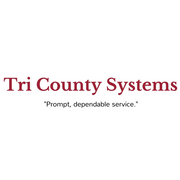
Your septic system is made of several core components that work together to collect and treat the wastewater that comes from your home. If these parts are damaged or disrupted, it can lead to backups in the home or overflows in the yard. Learn more about how these systems work so that you can schedule service and repairs as needed to keep your plumbing running smoothly.
How Do Septic Systems Work?
1. Drain Line
The drain line connects your home and septic tank. The pipes from the home’s toilets, sinks, tubs, drains, and water-based appliances like washers lead to this line.
The pipe carries all of the waste from the home to the septic tank, so it’s crucial that it doesn’t become clogged. Rinsing or flushing food waste like grease or rice, or certain hygiene products can lead to blockages in the drain line.
2. Septic Tank
As wastewater enters the tank, solid waste settles on the bottom and liquid sewage, called effluent, is pushed through a filter to remove any remaining waste. Clog-causing items that make it through the drain line can go on to clog the effluent filter, which is why you should be smart about what you flush.
 To prevent overflows, have the solid waste pumped out every three to five years. Tree roots may also cause cracks in the tank that allow waste to leak out. Have a septic professional show you where the tank is, so you can avoid planting trees and shrubs nearby.
To prevent overflows, have the solid waste pumped out every three to five years. Tree roots may also cause cracks in the tank that allow waste to leak out. Have a septic professional show you where the tank is, so you can avoid planting trees and shrubs nearby.
3. Distribution Box
As effluent leaves the tank, a distribution box separates the main exit line into several pipes that carry the effluent to the drain field. This component ensures that the effluent is evenly distributed. If one area of the drain field absorbs more effluent than others, it will impact the system’s efficiency.
4. Drain Field
The drain field is where wastewater is naturally filtered by soil, gravel, and sediment layers before it reaches underground water sources. Microbes further clean the water, and it returns to the water table safe and ready for use again.
As with the septic tank, planting on, driving over, or building on the drain field will cause problems. Weight will compress the soil and prevent effluent from being absorbed. The distributor box can then become clogged, leading to backups in the home.
If you need help learning more about or servicing your septic system, call Tri County Systems in Rochester, NY. Should these professionals find issues, they can provide septic pumping, drain field repairs, or installation for a replacement system. Explore the company’s full scope of work on the website or call (585) 467-2550 to speak with a helpful representative.
About the Business
Have a question? Ask the experts!
Send your question

